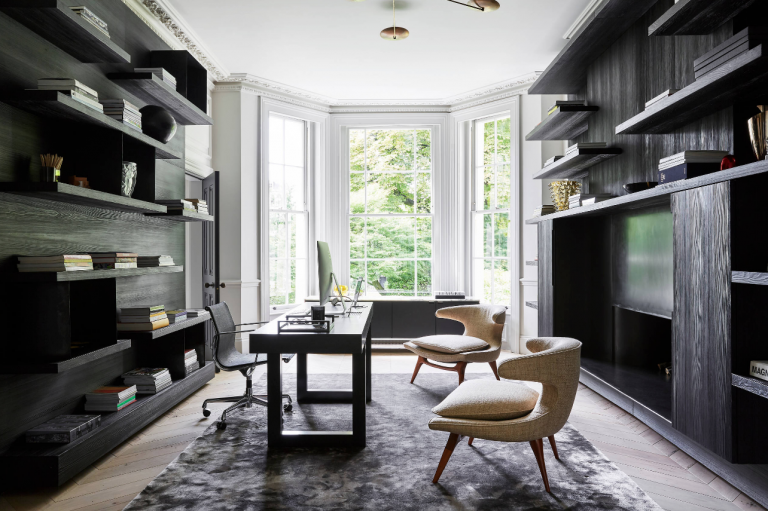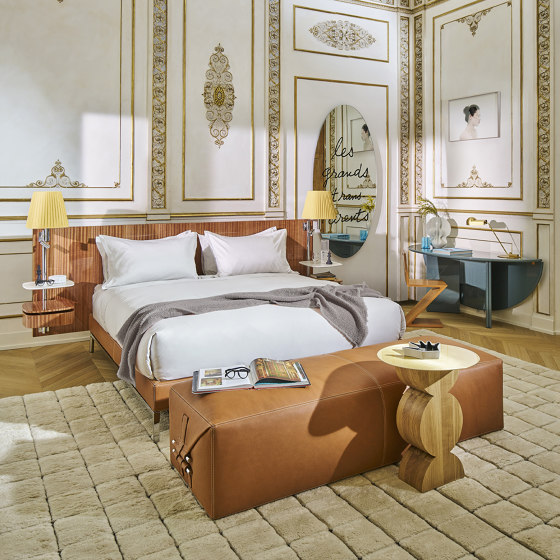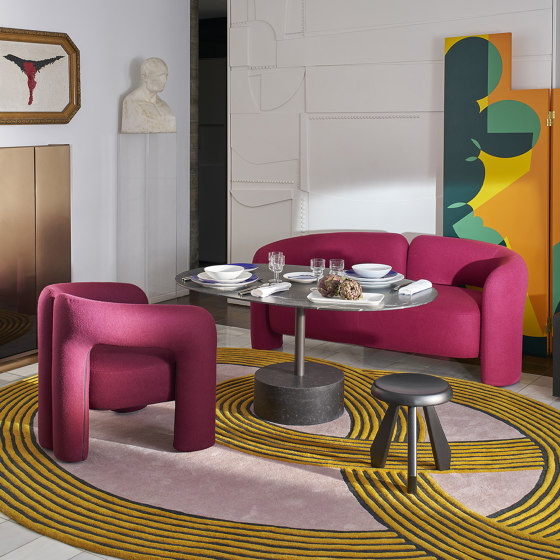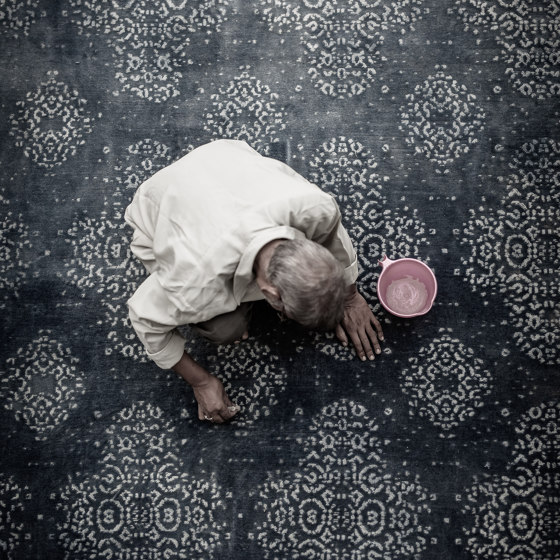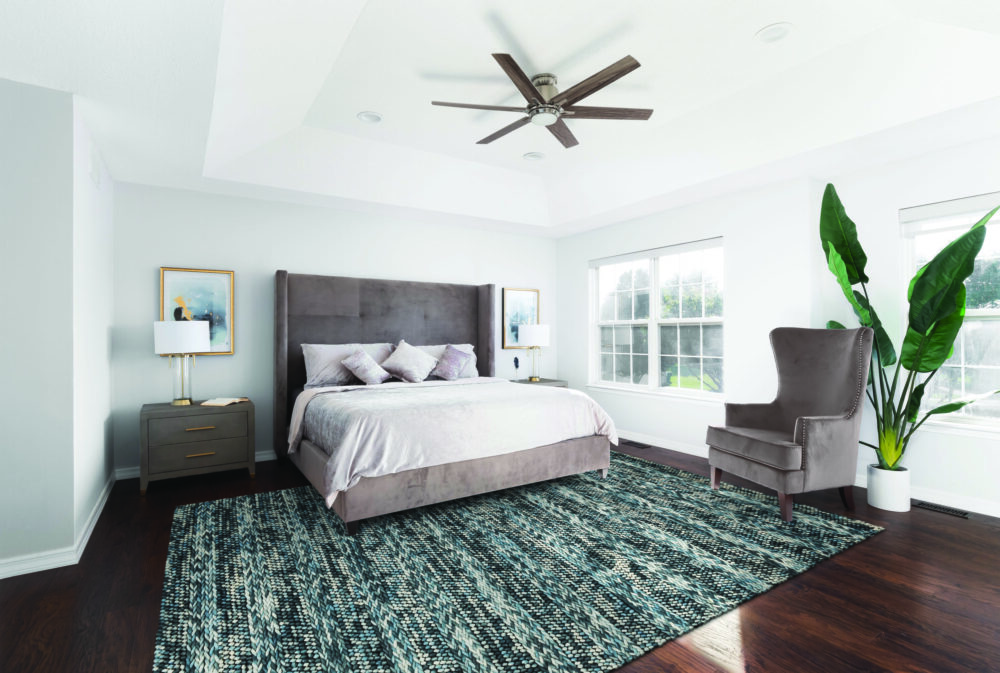NeKeia McSwain is designing spaces — and shifting culture l Portrait

NeKeia McSwain is the principal designer and owner at NeKeia + Co. with headquarters in Mississippi, Louisiana and Colorado. The company is a woman-owned and operated firm. McSwain has two collaborations with Ngala Trading and more on the horizon. Read on to hear what she told Home Accents Today about her interior design journey and more.
Did you always plan to be an interior designer?
Not exactly. I always knew I was meant to create, to build, to tell stories — but interior design found me in the most organic way. I grew up surrounded by strong, resourceful women who made beauty out of what they had. I didn’t call it “design” back then, but I was watching and learning the art of transformation. Eventually, through being tired of being overlooked in my raw talent, I realized I could take that gift, that intuition, and build a career around it. So no, I didn’t plan it — but I was always preparing for it.
What role does your personal background play in your creative process?
It plays every role. I bring all of myself into my work — my Southern roots, my upbringing, my culture, my Blackness, my womanhood. The way I approach color, texture, storytelling … It all comes from lived experience. I don’t design just to fill a space; I design to reflect spirit, memory, and heritage. My background gives my work a depth that’s more than aesthetic — it’s emotional, it’s intentional and it’s deeply personal.
How did your collaborations with Ngala Trading and Arhaus come about? What drew you to those brands? Any other collaborations in the works?
Both collaborations were born out of alignment — shared values, shared visions. With Ngala Trading, I was drawn to their respect for African craftsmanship and the artisans behind the work. It wasn’t just about product — it was about preservation, celebration, and storytelling. Arhaus’ came from an amazing PR team and a phenomenal marketing leader both understanding the assignment. Arhaus confirmed for me the meaning of luxury that doesn’t compromise authenticity. We wanted to bring luxury and soul into my home, not just style. And yes, hopefully there are more collabs in the pipeline, all rooted in cultural reverence, not just trends.
How do you see partnerships like the one with Ngala Trading shifting conversation around repreentation and cultural ownership in the design world?
It’s about reclaiming narrative and nurturing it as time passes. For too long, African-inspired design was used without acknowledging its origin. Collaborations like this one, put respect back on the craft and the culture. They create space for artisans to be seen, not as inspiration, but as owners of their narrative. It also challenges the industry to stop overlooking Black designers and Black stories. We’ve always been leaders of the design legacy, and now the world is finally starting to catch up like a granny when she hears her soap intro on the TV.
What do you hope people feel when they bring one of thesepieces into their home?
I want people to feel like their neighbors would be filled with envy the moment they step foot into their home … I mean when it comes to the intentionality behind their pieces. I want people to feel connected to the craft, to the culture, to the story. These aren’t just pieces of furniture or lighting, they’re prize points for conversation, history and most of all, identity. Whether someone knows the full story behind a piece or just feels drawn to it intuitively, I want them to feel something real.
Along with your partnership with Ngala Trading, you’re also a successful designer. What project are you most proud of and why?
That’s like choosing a favorite child! I’m the baby of two but I secretly know I’m the fave! If I had to choose, I’d say the projects where I was able to change not just a space, but a life. There was one home in particular — multi-generational, deeply rooted in family legacy. It wasn’t just about renovating a house, it was about honoring lineage. Being able to translate that love and history into design… that’s what I’m most proud of. That’s when design becomes divine.
You’re the president of the Black Interior Designers Network Inc., which just launched a new mentorship program. Why is that important to you?
Because representation without access is performative. Our mentorship program is about equipping, not just inspiring. I know what it’s like to be talented but invisible. I don’t want the next generation of Black designers to have to knock on closed doors for years before they’re let in. We’re crafting our own tables and our own pivot doors now — and holding them open for others.
What is a typical day like for you?
There’s no such thing as “typical,” and that’s the beauty and the chaos of it. Some days I’m on a job site in Birkenstocks and dust, the next day, I’m bothering my junior designer for CAD or hand-drawn concepts, presenting to a client, then hopping on a call for BIDN Inc. I juggle a lot of hats — designer, collaborator, mentor, leader — but they all feed each other. It’s a lot, but it’s mine. And I love it down!
Are you a leaper or a planner?
I’m both. I dream with wild abandon, but I also execute with precision. I’m kinda an annoying perfectionist and obnoxiously intentional. I believe in divine timing, but I don’t wait for permission. I’ve learned to leap when God calls, and then I plan every step so I don’t miss the blessing.
What legacy do you hope to leave in the design world?
I’ll be remembered as the woman with the genuine heart and deep talent who created space — literally and figuratively. Someone who made rooms more beautiful and made the industry more inclusive. My work stands as a reminder that culture is not a trend, that heritage is not optional, and that true design is about truth — not just taste.

